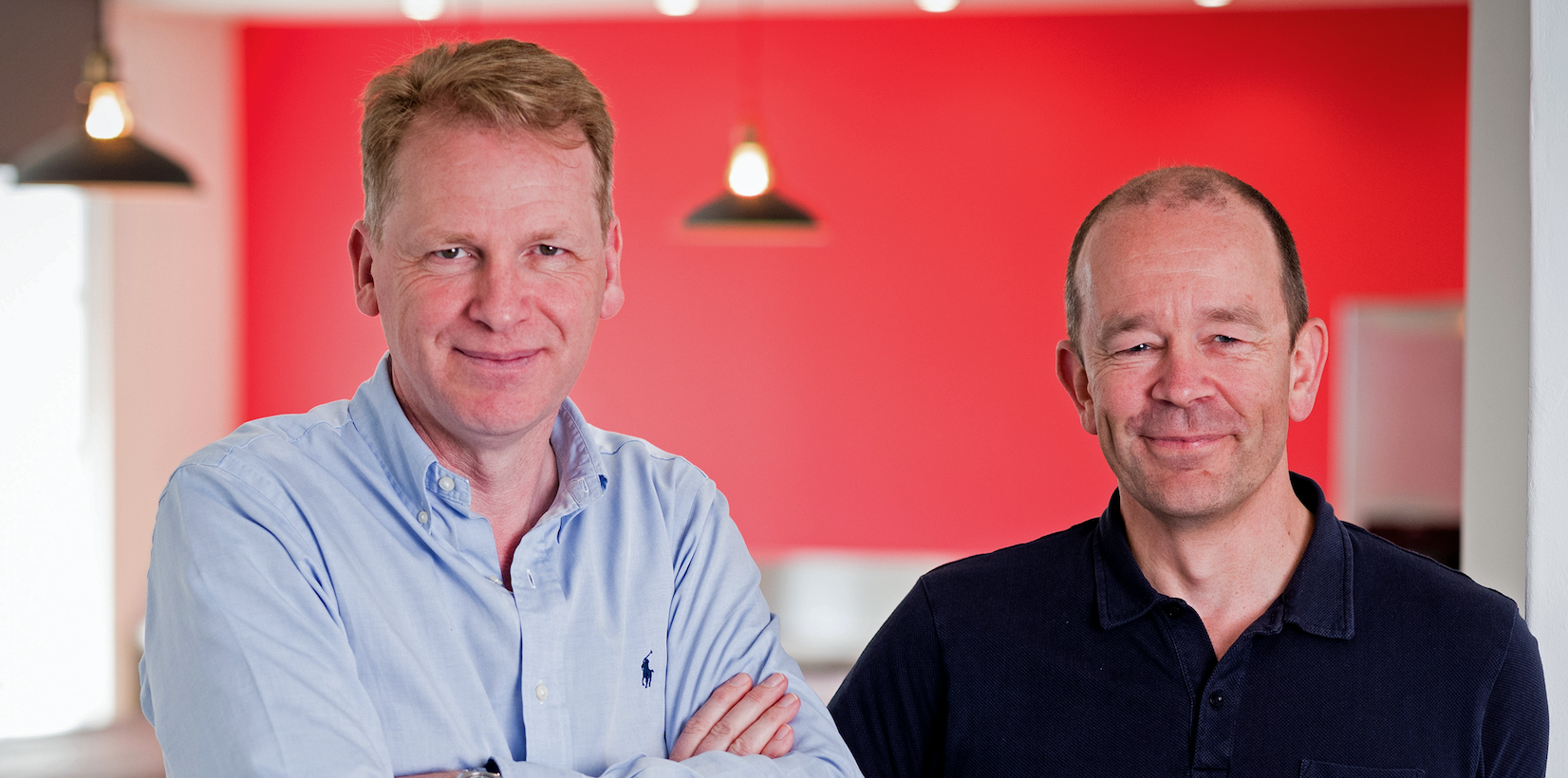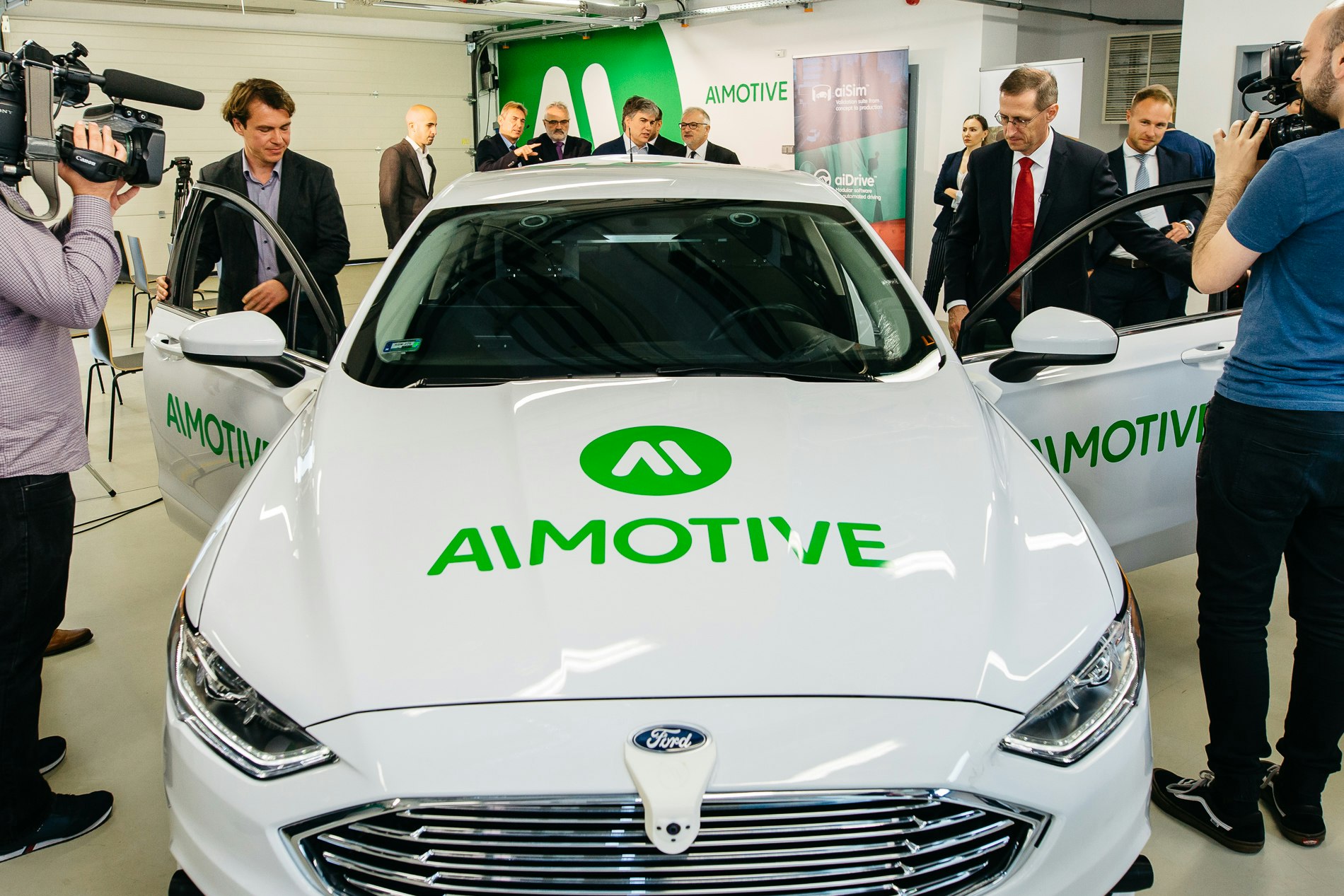“If you look at topics like AI and how much the US and China are investing in these, Europe is an order of magnitude behind,” says Ingo Ramesohl, managing director of Robert Bosch Venture Capital, one of Europe’s oldest and most successful corporate venture funds.
RBVC is to some extent helping to redress this balance, with investments into companies like Budapest-based self-driving car startup AImotive, and Prophesee, the French neuromorphic vision systems startup, but Europe’s biggest strengths may be in other areas of deeptech, says Ramesohl.
Europe has some great companies like Graphcore and WaveOptics.
“Europe has its strong points, with some great companies like Graphcore and WaveOptics in the ecosystem. Valuations aren’t as big as in Silicon Valley — and China can be even more expensive,” says Ramesohl, who invests across all three territories.
The $600m investment fund, set up by Bosch Group in 2007, currently has 49 companies in its portfolio, including AI chip company Graphcore, which has a valuation of €2.5bn. More than a third of its portfolio companies are located in Europe.
The biggest challenge for Europe, Ramsohl told Sifted, is the old problem of not enough late-stage funding for scale-up companies. “This has improved a little, but if you look at the Graphcore last round it was mostly investors from the US and Canada.” It was Ontario Teachers’ Pensions which came in as a new investor in Graphcore’s $222m Series E funding round. RBVC itself typically invests up to a Series C round.
Investment as an asset class is not as popular in Europe as it is in the US and Canada.
“Investment as an asset class is not as popular in Europe as it is in the US and Canada. Unlocking more institutional funding — for example getting pension funds to invest more — would solve the problem,” said Ramesohl, who has headed the fund since 2015.
RBVC is one of Europe’s big investors in deeptech companies, with stakes in quantum computing companies like IonQ and Zapata (although both of these are North American startups). There is a slew of IoT and machine learning investments as well — all of which have strategic relevance for parent group Bosch. Bosch has so far never acquired a company that RBVC has invested in, but will frequently end up collaborating with them.

"The corporate venture arm is more of a way for Bosch to keep an eye on emerging technologies, rather than being about making a financial gain.”
“A $600m fund is not going to move the needle in a $72bn revenue company. What is valuable is that RBVC becomes the gateway to Bosch learning about startups,” Ramesohl told Sifted.
Sifted took a deep dive with Ramesohl into how the fund works — and what advice he’d give to other companies setting up a corporate venture capital (CVC) fund.
What is the relationship like between the fund and Bosch?
What we invest in needs to have a strategic fit with Bosch, and we do avoid investing in businesses that would compete with Bosch. We have Bosch executives on our advisory board, including Bosch’s Chief Technology Officer. But aside from that, we have a lot of flexibility.
The venture fund has big strategic value to Bosch — more than a financial return. The fund makes money but a $600m fund is not going to move the needle in a $72bn revenue company. What is valuable is that RBVC becomes the gateway to Bosch learning about startups. [The Bosch parent company focuses on domestic appliances, industrial technology, mobility, energy and construction and it is easy to see how the corporate venturing priorities mirror this].
Bosch has so far never acquired a company that RBVC has invested in.
We do six to 10 investments a year but we see hundreds of companies. Something may not be suitable for us to invest in but it might be suitable for a partnership with Bosch. That is an important value that we bring to the business — we are a contact point for startups and do the matchmaking with Bosch. We can help with practical issues like first contracts. And we can help evaluate the companies.
We aim to work with many of the startups we invest in — but not necessarily acquire them. Collaboration is always a target for us, acquisition is not. Bosch has so far never acquired a company that RBVC has invested in.
What are the main areas you are interested in investing in?
Most of our focus is on deeptech. Areas like automation, energy efficiency, quantum technologies and semiconductors are part of our investment strategy.
Artificial intelligence is one of the key topics. AI is changing rapidly — it started with research deals, then AI platform deals and now AI as a key enabler for everything. You invest in verticals that are enabled by AI.
AI hardware is still a developing field. Graphcore is on the high end but on the low end there are companies developing in-memory solutions — low power, low-cost AI in edge devices at a price of $1 a chip. This would allow things like picture recognition or behaviour monitoring to happen on a mobile phone or a sensor. Syntiant, for example, is one company developing this for mobile phone and IoT devices.
Memory — smaller and faster memory storage — is another focus.
Memory is another focus. FMC, based in Dresden, is developing ferromagnetic memory concepts - which will allow much smaller and faster computer memory storage, with a fraction of the power consumption we have today.
In the quantum sector we have invested in IonQ and Zapata. [IonQ recently listed on the stock exchange via a SPAC] The Zapata investment gives us a good window into quantum computing use because so many companies use their software.
Process automation is another theme. This trend has been accelerated by Covid.
Also, we have made some investments into construction tech because that is the industrial sector that is the least developed and has a lot more to do to be digitised. [RBVC joined the $10m Series A round for construction monitoring drone company SiteAware last September, for example, and has invested in Israeli startup Versatile, which provides decision-making tools for the construction industry].
What stage do you mainly invest in?
We mostly invest at Series A/B — but will do some Series C and above. RBVC will generally invest €15m per company, taking a 5-25% equity position. We are also an LP in other funds.
I know you get asked for advice by a lot of companies that are setting up CVC funds. What do you tell them?
My main advice is: be patient
Most corporations enter the VC market thinking that they can get a return in 2-3 years.
Most corporations enter the VC market thinking that they can get a return in two to three years. But VC is a very long-term investment, the usual lifetime of a fund is 10 years. You shouldn’t give up the fund in three years because it is not contributing a return.
The second piece of advice is to get good investors on the team.
The reputation of a typical CVC investor going to Silicon Valley is not the best. CVC investors are often seen as following strategic targets that change from year to year, but in venture capital investment you have to be very stable. We have really worked on our image and we act like an investment VC, making sure we support companies to the very end. If you are a startup CEO you need very reliable VC investors on board.
Maija Palmer is Sifted’s innovation editor. She covers deeptech and corporate innovation, and tweets from @maijapalmer


